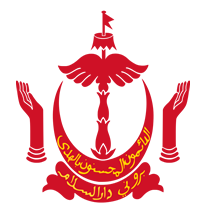Brunei: Government
Key Figures
- Chief of State:
- Sultan and Prime Minister Hassanal Bolkiah
- Head of Government:
- Sultan and Prime Minister Hassanal Bolkiah
Overview
- Government Name:
- Nation of Brunei, Abode of Peace
- Constitution:
- Adopted: 1959; Dictates the government including the executive head of state and various councils. Eliminated the need for elections.
- Government Type:
- Absolute Monarchy or Sultanate

Index of Economic Freedom
Grades each country on a scale of 0 to 100, based on ten freedoms, with 100 representing the greatest amount of economic autonomy from government intervention. Source: Heritage Foundation (2023)
Country Risk Rating
There is no Country Risk Rating for Brunei
Government Branches
| Main Powers | Election Process | Election Cycle 1 | |
|---|---|---|---|
| Executive | The sultan has absolute executive authority. It appoints legislative council members and the supreme court. |
The sultan and prime minister are hereditary. |
Hereditary |
| Judicial | The supreme court is the highest court of the land. Shariah deals with Islamic law matters. |
Supreme court judges are appointed by the monarch. The sharia court of appeal judges is appointed by the monarch. |
Supreme Court judges can serve until age 65, Sharia Court of Appeal judges have no term limits. |
| Legislative | The legislative council advises the sultan. |
The legislative council has 34 members who are appointed by the sultan. |
Until dismissal by sultan |
Regional Trade Blocs
International Organization Participation [2]
Environmental Agreements [3]
Tax Information [2]
- Tax Authority:
- Information not available
- Tax Name:
- Information not available
Sources:
- ElectionGuide http://www.electionguide.org/
- EY, http://www.ey.com
- CIA World Factbook, https://www.cia.gov/the-world-factbook/
- U.S. Bilateral Relations Fact Sheets http://www.state.gov/r/pa/ei/bgn/


